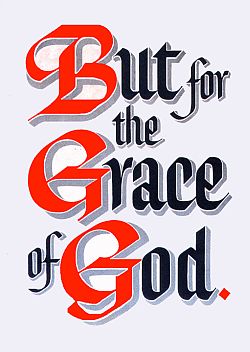They’ve been calling 2014 the Year of the Faith Film. I know that in the evangelical community I tend to find myself thrust into, people were pumped about that. Perhaps Hollywood was waking up from its superhero love fest and rediscovering that the Good Book has its own caped crusaders (well, toga-ed, or whatever it is that they wore—you get the point) that can teach us about life.
So far, I’m not sure the Year of the Faith Film is delivering on its promise. And I wonder what that says about our understanding of what faith really is.
Three of those films have hit the cineplexes in recent weeks. I haven’t seen any of them. I’m not sure I would ever want to.
Noah has been called by its director “the least biblical biblical film ever made,” and at achieving this he seems to have succeeded, pulling from just about any ancient text outside the Bible that even hints at a flood narrative. He then offers us a man of “faith” whose righteousness appears to derive from despising anything that isn’t a fuzzy bunny, himself included. Rather than the LSD Methuselah slipped into Noah’s tea, Prozac may have been a better choice. Some have wondered if the director culled more from the works of J.R.R Tolkien and Timothy Leary than from the Jews.
God’s Not Dead is evangelicalism’s answer to Noah, pitting its faithful-to-a-fault, Christian-American, teen apologist against the evil college professor in a battle of hermeneutics, which everyone knows is the most gripping plotline any moviegoer could possibly hope for. And yes, there are other subplots, but they all add up to what amounts to an evangelical snuff film, where the most anyone can long for in life is to get one’s “fire insurance” and avoid hell. Should have titled this God’s Not Dead, But You Will Be.
Son of God purports to be about the life of Jesus. I heard a rumor that Justin Beiber plays Jesus. Or is it Zach Efron? Being a wizened curmudgeon, I get my teen heartthrobs mixed up. I also hear they cut out the devil because he looked too much like our current president. Also purportedly, the filmmakers saved time and cash by filming this movie alongside the making of their made-for-TV pseudo-epic The Bible. I think from what I’ve written, you get an idea of how unchallenging this film is. That I can’t recall anyone from my church claiming to have seen it may be the most damning statement I can make about it.
What these three films tells us about the state of faith in America 2014 is that no one, especially Hollywood, has one lick of an idea what it means to be faithful in the every day. God exists at the periphery of life, relegated to weirdos or to the moment of death or to some milquetoast interpretation of “faith” that has nothing to do with the guy who wakes up in the morning and hopes to connect to God amid the daily commute, a pile of unpaid bills, and the American Dream. Perhaps the superhero love fest does have more say to us (heck, even God Is Not Dead features the actors who played Hercules and Superman).
The reality of faith in God that the Bible holds out to each one of us is that it IS relevant to the mundane day-to-day. No sacred/secular divide exists, and Christianity is filled to the brim with truth that suffuses every part of life, which is what makes it worth living. God isn’t just there in the flood. He’s not just there when we die. He’s not a cleverly marketed and filmed made-for-TV-but-shown-in-the-theaters side project. God intends to be there in everything we do and to give those activities meaning.
Henry David Thoreau said that the mass of men lead lives of quiet desperation. If these three “faith” movies were the only gauge to what faith in God is all about, I can understand that desperation.
Perhaps it’s not possible to encompass the richness of a life found in Christ and jam it into a two hours of screen time. Filmmakers will keep trying, though. And I suspect they will keep failing.
Perhaps we don’t know what a genuinely Christian life looks like in America 2014. Certainly, a lack of models is one reason. We’ve made strange alliances with worldliness and can no longer extricate that worldliness from truth. Sometimes, we even call evil good and good evil.
The God of the Bible offers abundant life. His word speaks to all parts of human existence. He is our God both when we are kneeling in church and when we’re sitting on the john. All of life, especially the middle we can’t seem to ascribe to Him, is filled with His Life.
How we make that true and real to most of us has yet to be filmed. Or in America 2014, lived.


 Person A : “Yes, you need to love people in Jesus’ name, but you can’t excuse their sin. Love them, but call them to repentance too.”
Person A : “Yes, you need to love people in Jesus’ name, but you can’t excuse their sin. Love them, but call them to repentance too.”